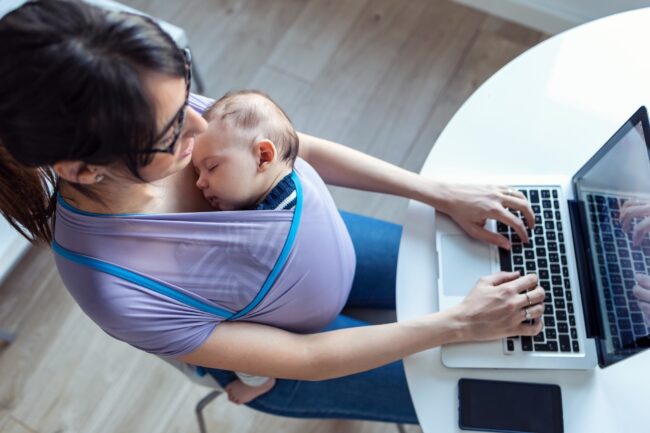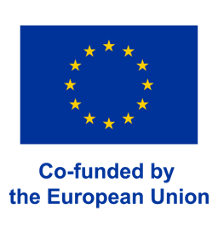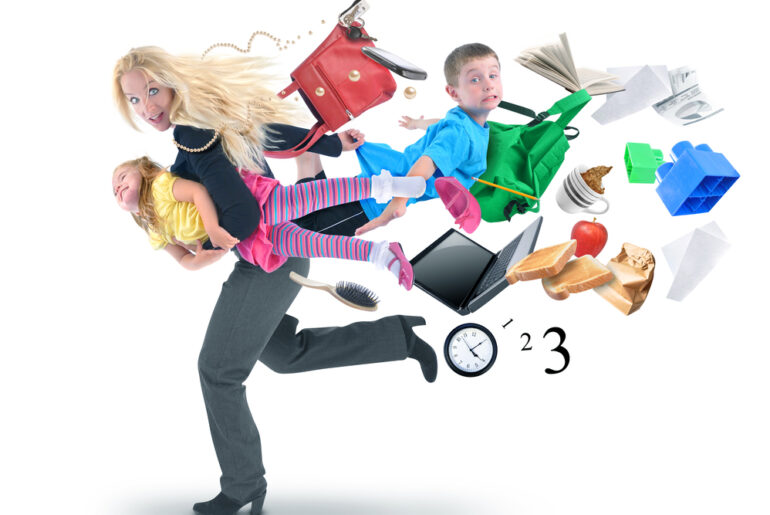Mothers Can-Bringing mothers back to work
13.05.24

MMM is working on the project “Mothers Can-Bringing mothers back to work”, a European partnership between six countries (Belgium, Cyprus, Germany, Romania, Spain and Greece). The project aims to support mothers’ empowerment, professional development, acquisition of entrepreneurial competences and their reintegration into the labour market, alongside awareness raising and training activities addressing hiring managers.
A publication of Eurostat (1 May 2020) about working parents with young children in the EU, confirmed that only one third of adults lived in households where both parents were working full time. Around one in five lived in households where both parents were working, but with at least one of them working part time. Furthermore, two in five lived in households where at least one parent was not working, while 7% lived in households where none of the parents were working.
 It is usually the mother who chooses to quit her job or reduces her working hours. Surveys reveal that fewer than one-in-five of all new mothers, and 29% of first-time mothers, return to full-time work in the first three years after maternity leave, falling to 15% after five years. Compared to men, where only 4% leave employment within five years following the birth of a child, over 17% of women leave their job in the same timeframe.
It is usually the mother who chooses to quit her job or reduces her working hours. Surveys reveal that fewer than one-in-five of all new mothers, and 29% of first-time mothers, return to full-time work in the first three years after maternity leave, falling to 15% after five years. Compared to men, where only 4% leave employment within five years following the birth of a child, over 17% of women leave their job in the same timeframe.
In terms of household earnings, in the year before childbirth, the man is the main earner in 54 percent of couples, increasing to 69% three years after birth.
Regarding equal access to a fair job, mothers who leave employment completely, are three times more likely to return to a lower-paid or lower-responsibility role than those who do not take a break.
Within this context, the project focuses on women’s ability to return to work after childbirth. In order to contribute to this objective, the project puts in place concrete actions in the targeted countries:
- An empowerment scheme tailored to mothers in or after pregnancy, increasing their self-sufficiency providing them with skills and competences and supporting them in their integration to the labour market
- An awareness raising and training package for hiring managers, enabling them to create more inclusive environments for mothers
- A training course in the form of Open Educational Resources (OERs) to increase entrepreneurial skills tailored to mothers who wish to become self-employed
Our role in this project is key for the capitalisation of the project’s results, bringing the challenges faced by mothers and their specific needs, and the recommendations emerging from the project, to the European level, ensuring visibility and effective advocacy action for the mothers’ right to work.
 The project is now entering the operational phase and we invite you to visit the MothersCan website to stay updated on its progress: https://www.motherscan.eu/en/
The project is now entering the operational phase and we invite you to visit the MothersCan website to stay updated on its progress: https://www.motherscan.eu/en/
The main results achieved in this first year of implementation are:
- Infographic comparing the parental leave conditions in the targeted countries, intended not only as an informative resource for parents and parents-to-be in the EU, but also to help recognize the importance of parental leave policies in shaping family life and the world of work in Europe and help to advocate for more supportive parental leaves. https://www.motherscan.eu/en/parental-leave-regulations-in-eu-countries-en/
- Videos featuring mother entrepreneurs, sharing their experience and professional path, to inspire future entrepreneurs https://www.motherscan.eu/en/mothers-as-entrepreneurs-en/
Breaking the Cycle: Gender Equality as a Path to Better Mental Health
18.03.25
The Council of the European Union has taken a decisive step in recognising the vital connection between gender equality and mental health.
Europe Must Listen to Mothers: Our landmark report heads to the European Parliament
28.08.25
On 22 September 2025, the voices of mothers will take centre stage in Brussels. For the first time, Make Mothers Matter (MMM) will present its State of Motherhood in Europe
Ensuring Work-Life Balance: The EU’s Commitment to Supporting Parents, notably mothers, and Gender Equality
19.03.25
At the latest EPSCO Council (Employment, Social Policy, Health, and Consumer Affairs), the Council of the European Union adopted groundbreaking Conclusions aimed at addressing work-life balance and pr








